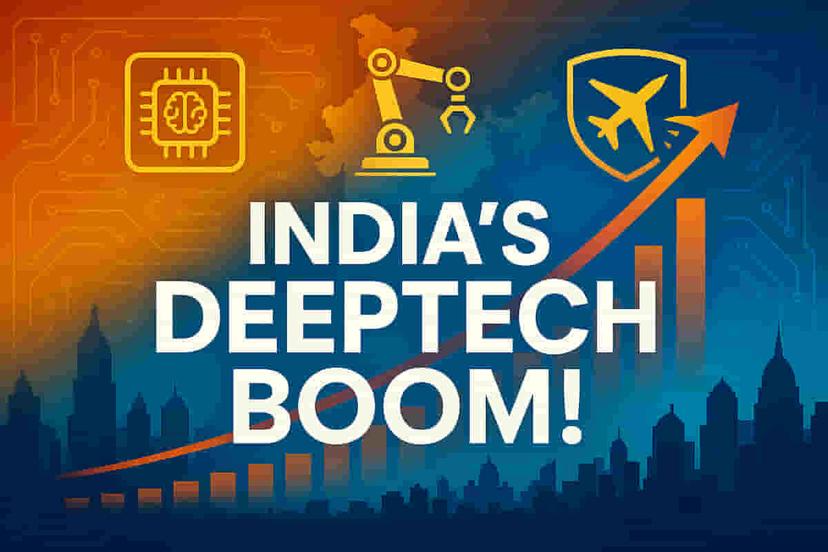Dubai Tokenized Properties vs. India REITs: A New Era for Accessible Real Estate Investment
Real Estate
|
Updated on 09 Nov 2025, 02:30 pm
Reviewed By
Abhay Singh | Whalesbook News Team
Short Description:

▶
Stocks Mentioned:
Detailed Coverage:
Dubai is transforming real estate investment by tokenizing properties into digital shares, allowing fractional ownership with a minimum investment of just AED 2,000 (approximately ₹48,000). Projects like a Damac apartment in Business Bay, Kensington Waters apartment, and a villa in Rukan Community have seen rapid sell-outs, attracting investors from diverse nationalities. This model, regulated by the Virtual Assets Regulatory Authority (VARA) and Dubai Land Department (DLD), uses blockchain technology to enhance transparency and reduce fraud risk. Projections suggest tokenized properties could constitute 7% of Dubai's real estate market by 2033, valued at AED 60 billion. Key benefits include increased liquidity, transparency, security, cost efficiency, and regulatory assurance. For Indian investors in the UAE, compliance with FEMA and Liberalised Remittance Scheme (LRS) rules is necessary.
In contrast, India's Real Estate Investment Trusts (REITs) offer a more institutional approach. These are trusts that own and operate income-generating commercial properties like office parks, malls, and warehouses. Investors buy units in REITs, receiving dividends from rental income and potential capital appreciation. India has several listed REITs, including Embassy Office Parks REIT, Mindspace Business Parks REIT, Brookfield India Real Estate Trust, and Nexus Select Trust REIT, managing assets exceeding ₹1.63 lakh crore and distributing substantial amounts to unitholders. Performance varies, with some REITs offering annualised returns of over 20% (like Nexus Select Trust), while others provide moderate growth with yields around 6-6.5%. REITs are regulated by the Securities and Exchange Board of India (SEBI).
Comparing the two, tokenization offers direct fractional ownership via blockchain tokens with peer-to-peer trading potential, while REITs provide indirect ownership through trust units traded on stock exchanges. Dubai's model is tech-led and experimental, whereas India's is institutional and yield-driven.
Impact This news significantly impacts Indian investors by presenting two distinct pathways to real estate investment, one highly accessible and digitally native in Dubai, and a more established institutional route in India. It highlights emerging trends in fractional ownership and cross-border investment, potentially driving innovation in how real estate assets are accessed and managed globally and domestically. This could lead to increased diversification options for investors and greater capital flow into real estate sectors. Rating: 7/10
Difficult Terms Tokenisation: The process of converting ownership rights of a physical asset, like real estate, into digital tokens recorded on a blockchain. Blockchain: A distributed, immutable digital ledger that securely records transactions across a network of computers. REITs (Real Estate Investment Trusts): Companies that own, operate, or finance income-generating real estate, allowing investors to buy units for income and capital gains, similar to mutual funds for property. FEMA (Foreign Exchange Management Act): Indian legislation that governs foreign exchange transactions and overseas investments made by Indian residents. Liberalised Remittance Scheme (LRS): A scheme by the Reserve Bank of India enabling resident individuals to remit funds abroad for permitted transactions. VARA (Virtual Assets Regulatory Authority): The official regulator for virtual assets in Dubai, overseeing activities like property tokenization. DLD (Dubai Land Department): The government body responsible for regulating and overseeing the real estate sector in Dubai. SEBI (Securities and Exchange Board of India): The primary regulatory body for securities markets in India.
Tech Sector

Asia Tech Rally Faces Selloff Amid Valuation Concerns and Concentration Risks

Cyberattack Surge on Indian Banks and Industries Necessitates Cloud and AI Security

AI Employees and Agentic Recruiters are Revolutionizing the Employee Journey

Finance Minister Reviews Tata Electronics Semiconductor Facility in Assam, Boosting State's Global Role

India's Deeptech Sector Poised for $30 Billion Growth by 2030, Fueled by Defense and Robotics

Asia's Tech Rally Faces Correction Amidst Sell-off and Uncertainty

Asia Tech Rally Faces Selloff Amid Valuation Concerns and Concentration Risks

Cyberattack Surge on Indian Banks and Industries Necessitates Cloud and AI Security

AI Employees and Agentic Recruiters are Revolutionizing the Employee Journey

Finance Minister Reviews Tata Electronics Semiconductor Facility in Assam, Boosting State's Global Role

India's Deeptech Sector Poised for $30 Billion Growth by 2030, Fueled by Defense and Robotics

Asia's Tech Rally Faces Correction Amidst Sell-off and Uncertainty
International News Sector

India and Bahrain Launch International Commercial Court to Boost Cross-Border Trade and Investment
